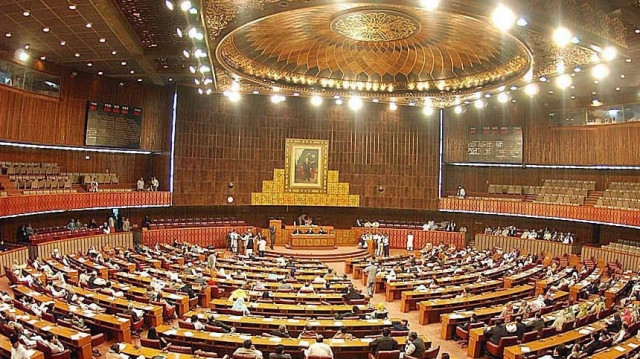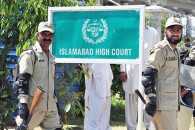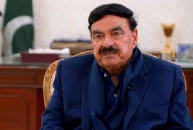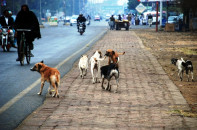Election primer: Understanding today’s Senate polls
PPP stands on the brink of domination in the upper house of parliament.

With members of the four provincial assemblies, the Federally Administered Tribal Areas (Fata) and from the federal capital territory casting their ballots today, the Pakistan Peoples Party (PPP) is all set to emerge as the largest party in the Senate.
A little history
The Senate is a permanent legislative body which symbolises a process of continuity in the national governance. The term of each member is six years. However, one half of its members retire after every three years.
The 1973 Constitution, passed on April 12, 1973, and promulgated on August 14, 1973, provides for a parliamentary form of government with a bicameral legislature, comprising the National Assembly and the Senate.
Originally, the number of Senate members was 45. It was increased to 63 in 1977 and to 87 in 1985. In 2002, the government of former president General (retd) Pervez Musharraf raised the membership from 87 to 100.
In 2012, the size of the Senate will increase to 104 – with the addition of reserved seats for members from Pakistan’s minority, non-Muslim communities. Though 10 seats are reserved in the National Assembly for minorities, there has been no quota in the Senate until now.
Following the 18th Amendment, four seats for minorities – one from each province – have been added to the Senate.
Composition
The Senate now consists of 104 members and has equal representation from the provinces regardless of population, unlike the directly-elected general seats of the National Assembly – which is contested on the basis of adult franchise.
Each province gets 23 senators – 14 general, four technocrats/ulema, four women and one non-Muslim). The federal capital territory, which does not come under any of the provinces, gets four Senate seats – two general, one technocrat/ulema and one woman. Eight senators come from the Federally Administered Tribal Areas (Fata).
Though seventeen seats have been allocated to women, there is no bar on women to seek elections from other categories – for example on minority, technocrat or general seats.
Criteria
Senate elections take place in accordance with Article 59 of the Constitution.
A person seeking election to the Senate should not be less than 30 years old and should be registered as a voter in an area or province from where he seeks election – in addition to meeting other qualifications prescribed under Article 62 and 63 of the Constitution (the criterion of ‘good’, ‘honest’ and ‘clean’ candidates).
Voting method
The Senate polls are nothing short of a complex mathematical equation.
It is the responsibility of the chief election commissioner to hold and take measures for the Senate elections in accordance with the system through electoral colleges.
The election itself takes place in each of the provinces, the federal capital and Fata.
The voting is done by balloting, cast between 9:00 am and 4:00 pm under the supervision of provincial election commissioners. Each member of an electoral college (for example, a member of the Balochistan Assembly) makes a priority list – first choice, second choice, etc – of the candidates that are vying for the Senate seats. Senators are elected based on the priority each member gets from each member of an electoral college.
It is not without reason that each party goes through intense election strategies, forming groups of members who are actually assigned which candidate to give what priority to and ensure there is no confusion in voting.
Candidates returned to Senate uncontested
In Punjab, five members have already been elected uncontested. Two unopposed winners are Barrister Aitzaz Ahsan from the PPP and Senator Ishaq Dar from the PML-N on the technocrat/ulema seats, Nuzhat Sadiq from PML-N and Khalida Parveen from the PPP won uncontested on reserved seats for women and Kamran Michael from the PML-N has already won the reserved seat for non-Muslims.
From Sindh Adviser to Prime Minister on Finance Dr Abdul Hafeez Sheikh from the PPP and Muhammad Faroogh Naseem from the Muttahida Qaumi Movement (MQM) have been elected uncontested on two seats reserved for technocrats.
From the federal capital, Osman Saifullah Khan from the PPP and Mushahid Hussain Syed from the PML-Q have also been elected unopposed.
Published in The Express Tribune, March 2nd, 2012.



















COMMENTS
Comments are moderated and generally will be posted if they are on-topic and not abusive.
For more information, please see our Comments FAQ